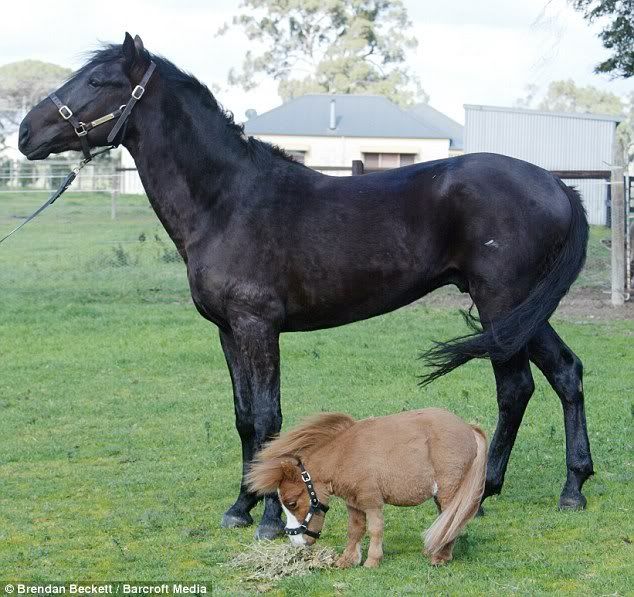
Caring for horses requires a deep dedication and love for the animal. Like all animals, horses must be given normal preventive care to avoid sickness and maintain their good health. The basic requirements for your horse to have better health are clean fresh air, food and drink everyday. It is also basic for horses to be kept in a clean stable where water is always available.
When feeding the horse or the pony, you must remember that it needs about three percent of its body weight for nourishment daily. You may feed it with grass or hay and hard feed. It must be fed with about seventy percent of grass or hay everyday.
Feed only good quality of grass, hay and feed. Usually, rotten hay can cause stomach pain to the horse. There must be plenty of fiber or bulk in the hay. The utensils for the feed or water must be clean. The food must be given on a regular basis. Allot at least one hour before bringing the horse to its routine exercise.
Feeds for horses may be composed of oats, barleys, bran, nuts, sugar beet, linseed or a course mix of cereals. Try to prevent the horse from eating too quickly since this can cause it to choke. One tip is to mix large rocks in the bucket of the horse’s food. This way the horse is forced to take smaller amounts of food as it avoids the large rocks.
Horses should also have regular foot care. Usually, every four to six weeks depending on the condition of the horse and the weather, the horse’s footwear are checked and fixed. At least once a day, the feet of the horse must be cleaned by removing any stones or mud. Keeping the feet clean at all times would prevent infections and lameness.
The teeth of the horse must also be checked at least once a year. Sharp teeth can be problematic when feeding and riding the horse. To rasp or file the teeth of the horse, the vet would do a floating to remove the sharp points of the teeth.
To prevent horses from growing parasitic worms in their tummies, they must be given a worming program. Depending on the type of worms, the horse may be wormed every eight to thirteen weeks. Veterinarians can give wormers that can be mixed with the horse’s daily food. These wormers may be in the form of paste, gel, powder, granules or capsules.
If not treated properly and immediately worms such as the lungworm, pinworm or seatworm, tapeworm and redworms may grow in numbers in the horse’s stomach. Bot eggs can also hatch on the coat of the horse. The horse may also have ringworm which is a contagious skin disease and can be treated through an anti-fungal wash.
In caring for horses, you must keep a first-aid kid intended for horses. This would include: a thermometer, petroleum jelly, salt or saline solution for wounds, animalintex, gamgee, scissors, bucket, sponge, antiseptic cream or gel, bandages, medical gloves, towel, soap and brush. The horse or pony must also be vaccinated to fight possible equine flu or tetanus.
A few special problems that horses may have are the equine infectious anemia and laminitis.
The Equine infectious anemia is a serious health problem that amounts approximately to 500 cases each year. EIA is a viral disease that affects the immune system of the horse. Due to this, the horse may develop other infections such as bronchopneumonia. There is no cure yet for EIA. The horse may be tested through a serum test.
Laminitis on the other hand is also a horse killer. This disease affects the horse’s feet caused by the disruption of blood flow to the laminae of the horse. The causes of laminitis are toxins in the horse’s body, high fever, digestive upsets due to overfeeding, severe colic, severe stress and excessive weight carried.
This may be detected when there is heat in the horse’s feet, increased pulse, pain in the toe and lameness. Treatments may include administering medical fluids to the horse’s body, dietary restrictions and therapy.
To know if the horse is sick, remember these few symptoms. The horse’s appetite suddenly decreases. You could also notice a reduction in the horse’s stamina and irregular heartbeats. The horse may also suffer from too much sweating, depression, red eyes and swollen legs. Call for the veterinarian when the horse seems sick to prevent serious problems.
Tidak ada komentar:
Posting Komentar